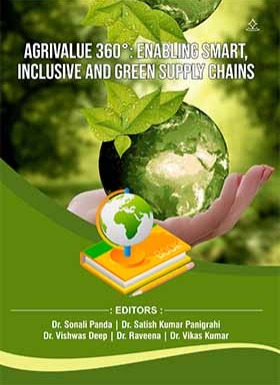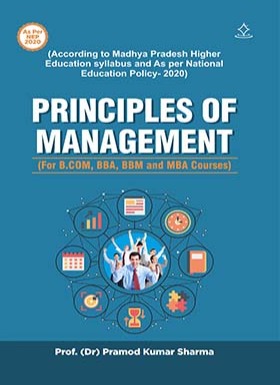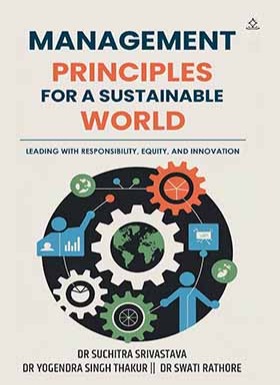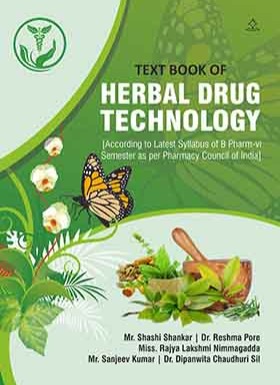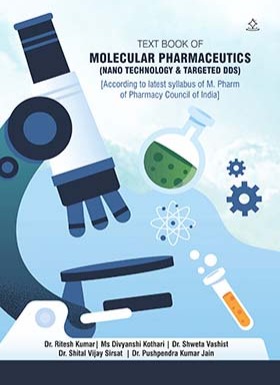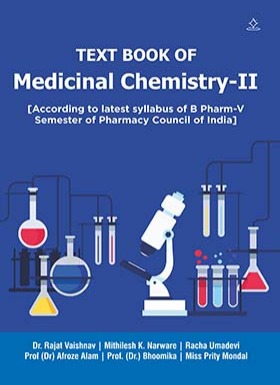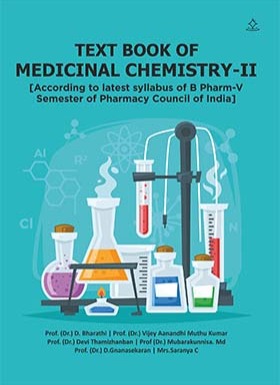About Book
AgriValue 360°: Enabling Smart, Inclusive and Green Supply Chains” is a comprehensive and forward-thinking edited volume that explores the transformation of agri-food systems in the 21st century. This book serves as a critical resource for academics, researchers, policymakers, entrepreneurs, and students interested in the nexus of agriculture, technology, sustainability, and inclusive development. With a multidimensional approach, the book emphasizes the importance of creating value across the entire agri-supply chain—from farm to fork—through the integration of smart technologies, inclusive strategies, and green practices.
The chapters in this edited volume are contributed by experts from diverse disciplines, offering rich insights into emerging trends such as precision agriculture, blockchain for traceability, circular bioeconomy, sustainable input systems, climate-resilient farming, and digital platforms for market linkage. The book also investigates the role of women, youth, and marginalized communities in agri-value chains, advocating for equitable participation and shared prosperity. The contributors argue that enhancing inclusiveness in agri-business models is key to sustainable rural livelihoods and food security.
Case studies from different regions underscore practical innovations, successful startups, and scalable interventions that have redefined agri-enterprise models. The book addresses contemporary challenges like supply chain disruptions, post-harvest losses, carbon emissions, and environmental degradation, proposing actionable strategies for their mitigation. It highlights the convergence of policy, science, and entrepreneurship in creating resilient food systems.
"AgriValue 360°" underscores that the future of agriculture is digital, collaborative, and environmentally conscious. The volume advocates for strong institutional frameworks, data-driven decision-making, and stakeholder partnerships to realize the vision of smart, inclusive, and green agri-value chains. Ultimately, this book is a timely contribution to the global discourse on sustainable agriculture and rural transformation in the face of climate change and global uncertainties.
About Author
Dr. Sonali Panda is currently serving as an Academic Counselor at the Indira Gandhi National Open University (IGNOU), where she has contributed to the academic and professional development of learners for over 4+ years. She holds a Ph.D. from Xavier Institute of Business Management Studies, with her research focusing on the value chain analysis of lac—a significant non-timber forest product in India. Her doctoral work explored the economic linkages, stakeholder participation, and potential for value addition within the lac industry, contributing valuable insights into sustainable rural livelihoods and agroforestry systems. Dr. Panda has actively participated in capacity-building initiatives and academic seminars, and she continues to engage with research that intersects agricultural value chains and rural development. With a strong commitment to inclusive education and grassroots empowerment, she aims to bridge the gap between academic knowledge and field-based implementation through her work with IGNOU and collaborative research endeavors.
Dr. Satish Kumar Panigrahi is an accomplished agriculturist with over five years of experience at Tata Steel Foundation. He earned his Ph.D. from Xavier Institute of Business Management Studies, where his research was specialized in the supply chain analysis of lac, a vital non-timber forest product contributing significantly to tribal economies. He plays a pivotal role in spearheading integrated agricultural and livelihood development initiatives under On-Farm, Off-Farm, and Non-Farm interventions. His expertise lies in sustainable crop diversification, horticulture promotion, and value chain development, including successful projects like sweet corn and strawberry cultivation, lac farming, and value addition of forest produce such as tamarind and jackfruit. Dr. Panigrahi is instrumental in strengthening Farmer Producer Companies (FPCs) for enhanced market linkage and farmer empowerment. He also contributes to research and development, focusing on innovation-led practices to boost rural incomes and nutritional security. Dr. Panigrahi combines scientific knowledge with grassroots engagement, making him a key driver of inclusive and sustainable agricultural development.
Dr. Vishwas Deep is an eminent academician in the field of Agribusiness. Presently he is working as Assistant Professor in Bhai Gurdas Degree College, Sangrur, Punjab. His area of expertise is supported by excellent research work in the field of supply chain management and consumer behavior during his doctorate and masters research work. He is having more than two years of experience in the filed of teaching and research. Many of his research work has been published in various Scopus indexed, international and national journals.
Dr. Raveena is an active academician in the field of commerce with a strong zeal to spread knowledge in the field of Statistics, accounting and finance. Apart from having extraordinary teaching skills, she possesses the excellent command over communication and personality improvement of the students. Many of her research papers, Patents have been published in various national and international journals. Her orientation towards research has always induced her to work more in the field of corporate finance with regard to capital structure and capital budgeting of business projects.
Dr. Vikas Kumar is an eminent Academician in the field of Horticulture. Presently he is serving as Assistant Professor of Faculty of Agriculture Sciences, Shri Khushal Das University, Hanumangarh, Rajasthan. His area of expertise is supported by excellent research work related to Vegetable and Spices Crop Garlic during his PhD. He has having more than 8 years of experience with an extensive exposure of conducting research and Patents in the field of Agriculture. Many of his research papers have been published in various national and international journals.
